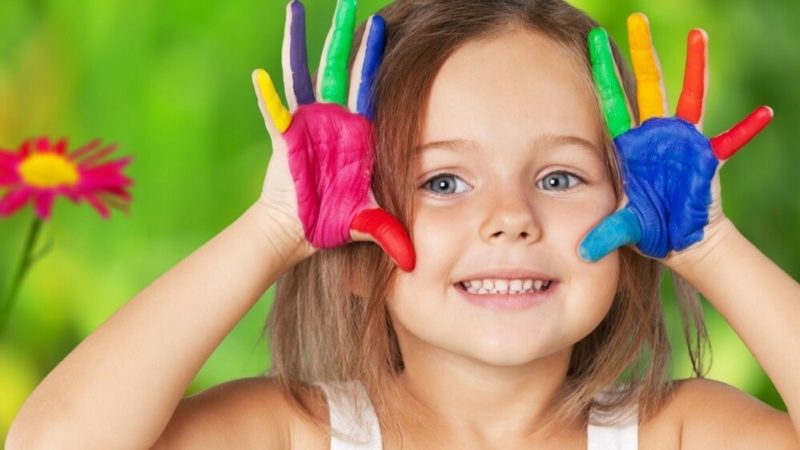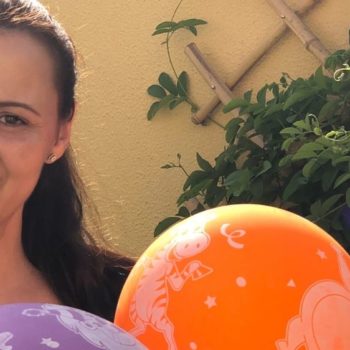
GROWING YOUNG AND FINDING WHO WE ARE
When we come to this world, we know nothing. In the universe of a child, there are no norms to follow, no rigid rules and regulations; there’s real freedom. Children are born free spirits. The way we think and behave as adults are shaped by our environment: family, school, religion and political system. Let’s be honest with this one: we are all brainwashed; only our schools were different.
From an early age, many of us got to hear about our weaknesses, shortcomings, flaws and (often perceived) limitations. Families, schooling systems were so much focused on the need for improvement, while very seldom (or never in some cases) acknowledging individual strengths, gifts, and talents. No wonder many of us had or still have to struggle with confidence issues and low self-esteem.
From the Eastern-European society that shaped me, I have learned that beautiful means young and slim. As a grown-up woman, I ended up having a dissonant relationship with my body for quite many years. I was obsessed with the size of my hips and always focusing on things I would have wanted to change in the way I looked.
Regarding dieting, I was an expert. I think I tried them all and that was a source of general stress and frustration. In case you’ve ever considered trying out the “three times a day cabbage soup,“ please don’t do that to yourself. Ever.
As a child, I used to think I was stupid only because my brain couldn’t cope with physics and math. I was passionate about literature, foreign languages, music, and arts, but that wasn’t a sign of brilliance in my culture. Much later, I perceived myself as not good enough or average, somehow smart but not intelligent, and I developed a strong need for perfection.
And here I am, in my 40s, still reading about self-improvement and infinite ways for me to become my Best Self. With so much need for improvement in the personal development industry, I wonder when I am ever supposed to turn into the best version of myself and find peace.
While I am aware there are things I need to work on (talk less and listen more, act less on an impulse and get more grounded, do less and be more and so on), I have decided to stop running this tiring race towards self-improvement. I think that’s a trap.
If I am to spend my precious time waiting to grow into my best self, I will always feel incomplete. There will always be something to change, add, fix or transform so that I could finally feel whole and complete.
I stopped projecting my journey into the future, with the intention to create a perfect persona I was supposed to become. Instead, I am going back to my childhood and the very first years of my life, when I was able to find complete happiness and freedom. Return to those times when anything felt possible, and I was whole and enough, as I was.
Here’s how my life looked like when I was a child:
1. I used to love myself unconditionally.
I can’t recall myself being concerned with any aspects of my body. I didn’t care my hips were too big or my hair was too thin. I didn’t judge myself as imperfect, less intelligent or too fat. I was a happy child, filled up with positive energy and hunger for life. Someone once called me Smiley. I used to spend much time laughing, playing and having fun.
“My inner child knows how perfect she is. I hold this child close to my heart and tell her how much I love her.” – Louise Hay
2. I used to live in the Now.
I can recall how present I was while playing with other children. At the time, I didn’t live in the past (in my “story”), because I didn’t have any. I didn’t live in the future either unless people were asking what I would want to be when I grew up. I had an extraordinary ability to dream and allow myself to be whatever I wanted to.
Whenever I wanted to be a doctor, I was one. If I wanted to be a teacher, I was one. I was even a ballerina one day and a singer, in front of my neighbors and more. I was too busy playing with other children and enjoying life, so I had no time for imaginary worries, problems, and fears that never happened.
“Yesterday is history; tomorrow is a mystery; today is a gift; that’s why we call it present.” – Unknown
3. I used to express my needs and emotions.
In my world, full of playfulness, creativity, and fun, things were straightforward and clear. Whenever I was hungry, I made sure my mother knew about that. When I was afraid, sad or upset, I said so. Whenever I wanted anything, I said so.
In this open communication space, there was no room for mind-reading or making assumptions. I didn’t claim I knew what other people felt or thought. If anything was unclear, I asked. I didn’t let my mind play with me and create scenarios about what other people had in their minds or hearts because I knew I wasn’t them. Life, in fact, was quite simple, and the more I started to grow into an adult, the stronger my need to complicate it.
“Don’t make assumptions. Find the courage to ask questions and to express what you really want. Communicate with others as clearly as you can to avoid misunderstandings, sadness, and drama.” – Don Miguel Ruiz
4. I didn’t worry about what other people think.
I’ll be brutally honest with this one: right from my very first years in school, there were quite a few situations when I didn’t dare to ask questions, especially when there was something I didn’t know. The truth is I didn’t want to look less intelligent or stupid in front of others. Teachers became an early symbol of authority, and I was afraid of punishment for getting bad grades.
Much later, at work, I was still trapped in this behavior. I didn’t feel comfortable to openly admit I didn’t hold all the answers and I still had to learn. I wanted people to perceive me as an expert, super smart, invincible and strong.
But that’s not who I was as a child. Not even close. At the time, I didn’t have to wear any masks and pretend; there was no need for people-pleasing so that people would like me more. I loved and approved of myself as I was, and other people’s opinions or validation of me was neither required or needed.
I dared to ask questions with genuine curiosity as if I knew nothing: How do you do that? What does this mean? How does this work? Can you show me how to do this?
Like most children, my ability to learn foreign languages was much higher than in high school because I didn’t care about spelling and complicate grammar or pronunciation rules. I just talked and gave it a try.
“To know what you know and what you do not know, that is true knowledge.” – Confucius
5. I was brave.
Believe me or not, but I do recall the moment I made my first step. It was at my grandparent’s house, in the living room. I can see myself falling on that blue carpet as if it was yesterday. And there’s another thing I remember: that I wasn’t afraid.
I think fear is a learned practice. Children are not afraid of trying, failing and getting up on their feet again. That’s how we get to learn how to walk! When they make the first step, I bet they don’t call themselves names or punish themselves if they fall. They rise up and give it a new try. They are not afraid to step outside of their comfort zone and try out new experiences. They keep going.
“Our deepest fear is not that we are inadequate. Our deepest fear is that we are powerful beyond measure. It is our light, not our darkness that most frightens us. We ask ourselves, ‘Who am I to be brilliant, gorgeous, talented, fabulous?’ Actually, who are you not to be? You are a child of God. Your playing small does not serve the world. There is nothing enlightened about shrinking so that other people won’t feel insecure around you. We are all meant to shine, as children do.” – Marianne Williamson
No matter how our life journey looks like today, there’s still a little child inside ourselves. A loving soul who wants the best for us and loves us unconditionally. Let us remember our true nature, grow young, return to innocence and reconnect with who we really are.
Love,
Sara
Want more useful tips and weekly inspiration?
Sign-up for my newsletter. - it's free!

- Posted by Sara Fabian
- On April 20, 2017



